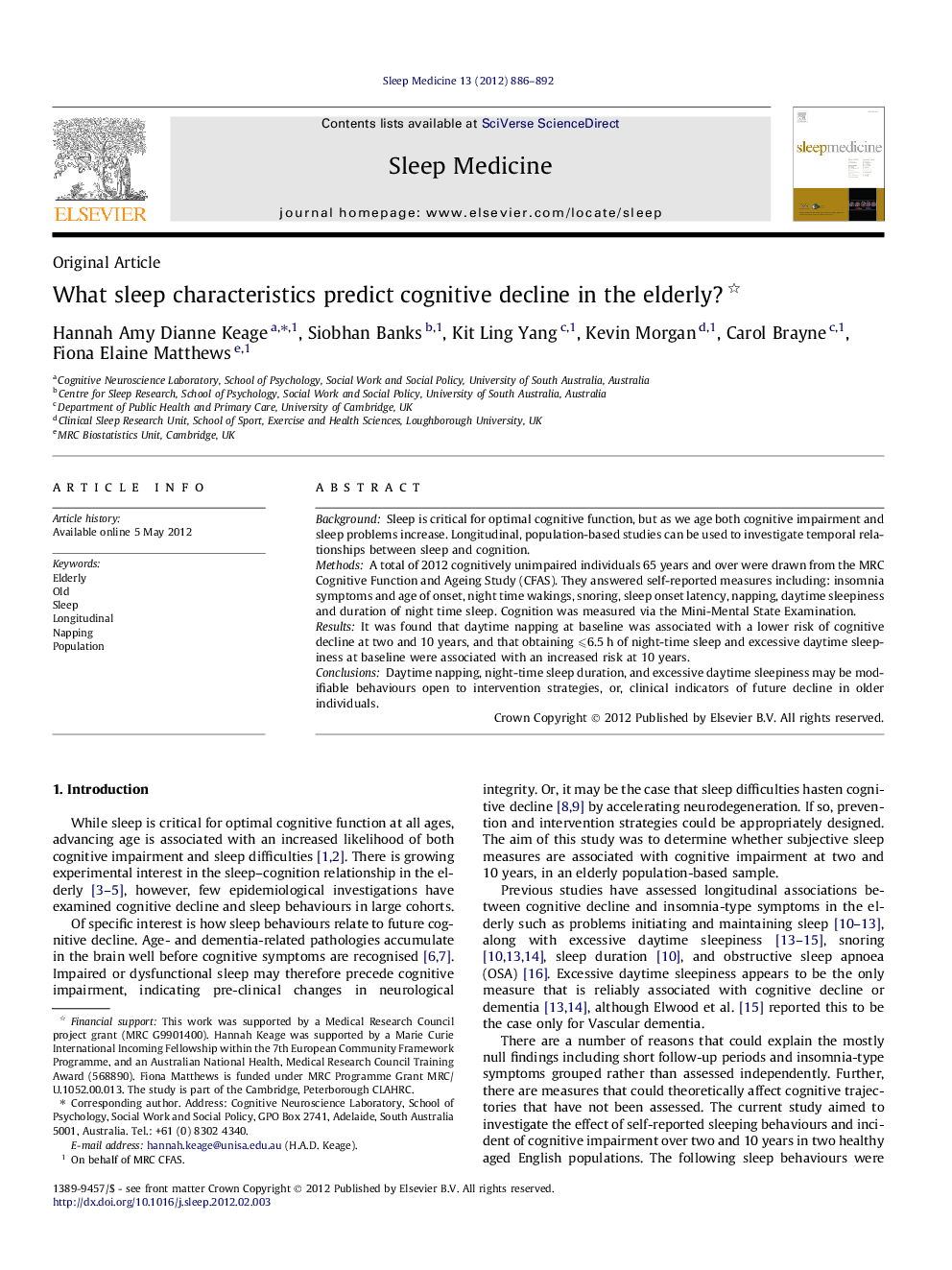| کد مقاله | کد نشریه | سال انتشار | مقاله انگلیسی | نسخه تمام متن |
|---|---|---|---|---|
| 3176300 | 1200257 | 2012 | 7 صفحه PDF | دانلود رایگان |

BackgroundSleep is critical for optimal cognitive function, but as we age both cognitive impairment and sleep problems increase. Longitudinal, population-based studies can be used to investigate temporal relationships between sleep and cognition.MethodsA total of 2012 cognitively unimpaired individuals 65 years and over were drawn from the MRC Cognitive Function and Ageing Study (CFAS). They answered self-reported measures including: insomnia symptoms and age of onset, night time wakings, snoring, sleep onset latency, napping, daytime sleepiness and duration of night time sleep. Cognition was measured via the Mini-Mental State Examination.ResultsIt was found that daytime napping at baseline was associated with a lower risk of cognitive decline at two and 10 years, and that obtaining ⩽6.5 h of night-time sleep and excessive daytime sleepiness at baseline were associated with an increased risk at 10 years.ConclusionsDaytime napping, night-time sleep duration, and excessive daytime sleepiness may be modifiable behaviours open to intervention strategies, or, clinical indicators of future decline in older individuals.
Journal: Sleep Medicine - Volume 13, Issue 7, August 2012, Pages 886–892